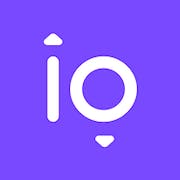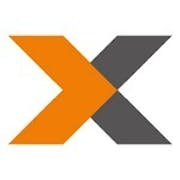Looking for the best bookkeeping software? Our comprehensive buyer's guide covers everything you need to know. Get insights, reviews and comparisons today! Find the perfect solution for your business.
Welcome to the comprehensive buyer's guide for bookkeeping software. Whether you're a small business owner looking to streamline your finances or a professional bookkeeper seeking to digitize traditional methods, selecting the right application can be a game-changer. With so many options flooding the market, it can be challenging to narrow down which program best fits your specific needs.
With years of experience in the bookkeeping industry and detailed research, we'll walk you through the crucial factors to consider when selecting such a tool. From pricing and functionality to ease of use and customer service, we've got you covered to help you make an informed business decision. Let's dive in!
What is bookkeeping software?
This is an essential tool that helps businesses keep their finances organized, transparent and up to date. It is a type of financial management technology that automates accounting and bookkeeping tasks. It is used by various types of businesses, ranging from small startups to large corporations, to manage their finances efficiently. Some of its common use cases include:
-
Recording financial transactions: It enables users to record every transaction made by their business automatically. This includes everything from income and sales to expenses and payments.
-
Producing financial statements: With the help of a bookkeeping tool, businesses can easily generate financial statements such as balance sheets, profit and loss statements, and cash flow statements.
-
Budgeting and forecasting: A bookkeeping package provides insights into business finances, making it easier for businesses to create budgets and forecasts.
-
Streamlining workflows: Bookkeeping software helps automate accounting and bookkeeping tasks, reducing the time and effort required to manage finances.
-
Facilitating tax compliance: This program automates tax calculations and generates tax reports, making it easier for businesses to stay compliant with tax regulations.
Various types of businesses can benefit from using this bookkeeping program. These include:
-
Small businesses: It helps small businesses save time and money by automating financial management tasks.
-
Medium-sized businesses: It also helps medium-sized businesses scale their operations and manage finances efficiently.
-
Large businesses: Large businesses can keep track of finances across multiple locations and departments making use of this system.
What are the benefits of utilizing a bookkeeping application?
Running a business can be a challenging and complex task, and keeping track of every financial transaction can be a real headache. However, with the help of an efficient and reliable bookkeeping app, businesses can manage their financial information more easily and accurately.
Here are some of the top benefits of using this tool:
Time-saving
Bookkeeping software automates manual tasks such as data entry, bank reconciliation, and generating financial reports. This can free up a significant amount of time for business owners and employees to focus on other important aspects of their operations.
Improved accuracy
By automating mundane and repetitive accounting tasks, bookkeeping software reduces the likelihood of errors caused by manual data-entry. This not only saves time and money but also improves the accuracy and reliability of financial information.
Better financial management
With access to real-time financial data, businesses can make more informed decisions about their finances. The system allows for better monitoring of cash flow, expenses, and revenue, making it easier to create accurate budgets and forecasts.
Faster invoicing and payment processing
It streamlines the invoicing and payment process by allowing businesses to create and send invoices quickly and easily. It also enables businesses to accept online payments, which can improve cash flow and reduce delays in receiving payments.
Improved tax compliance
This application can reduce the stress of tax season by helping businesses maintain accurate and up-to-date financial records. This can help ensure that businesses are complying with tax regulations and avoiding penalties for errors or late filings.
Better collaboration and communication
A bookkeeping program can improve collaboration and communication by allowing unlimited users to access the same financial data in real-time. This can also improve the accuracy and completeness of financial information by ensuring that all relevant data is available to those who need it.
Investing in bookkeeping software is a smart move for any business and with so many benefits, it's no wonder that it has become an essential tool for organizations of all sizes and industries.
10 key features of a bookkeeping solution
With the evolution of technology, bookkeeping software has become more advanced and user-friendly. In this section, we will discuss its top 10 common features that have become industry standards.
-
Invoicing: The vast majority of bookkeeping software comes with invoicing capabilities that allow users to generate professional-looking invoices and send them directly to clients. This feature is highly beneficial as it not only saves time but also reduces the risk of errors that come with manual invoicing.
-
Expense tracking: One of the most basic features is expense tracking, which allows businesses to keep a track of all their expenses in a centralized location.
-
Bank reconciliation: This additional feature allows business owners to reconcile their bank statements with their accounting records. This is an important task, as it helps ensure that all transactions recorded in the bookkeeping app accurately reflect the transactions that have occurred in the bank account.
-
Payroll: Many bookkeeping software offers built-in payroll processing capabilities that allow businesses to manage employee compensation, payroll taxes, and other related tasks.
-
Reporting: It comes with a variety of built-in reporting capabilities that enable businesses to generate profit and loss statements, balance sheets, and cash flow statements.
-
Automated data entry: This feature has revolutionized bookkeeping for modern businesses. With automated data entry, businesses can automatically import data from bank accounts, credit cards, and other sources, making data entry faster, more accurate, and more convenient.
-
Integration: Many bookkeeping platforms offer integration with other popular business software, such as CRM, e-commerce platforms, and payment processors.
-
Multi-currency support: This feature allows businesses to conduct transactions in multiple currencies, which is essential for businesses with international clients and suppliers.
-
Customization: Most bookkeeping software offers customization options, such as the ability to create custom reports, set up custom account categories, and set up custom tax rates.
-
Security: Finally, good bookkeeping software should incorporate security features that protect sensitive financial data. This includes password-protected user accounts, encrypted data storage, and regular data backups.
These are just some of the common features of a bookkeeping program. This tool has come a long way and has revolutionized the way businesses manage their finances. By adopting an application like this, companies can save time, reduce errors, and make informed decisions based on accurate financial data.
What to consider when investing in a bookkeeping solution?
Bookkeeping software can provide tremendous benefits to businesses in terms of efficiency and accuracy. However, with so many options available in the market, choosing the right one can be challenging. Here are some of the factors that businesses should consider:
Business needs
Before selecting, businesses must first define their needs and objectives. Whether it is financial reporting, managing accounts payable and receivable, or payroll, understanding the specific needs of the business is crucial.
Budget
Cost is always a significant consideration for businesses, and bookkeeping software is no exception. It's important to look for one that fits within the budget and provides all the necessary features to meet the business needs. Many options are available from low to high-end, with varying features and prices to fit different budgets.
User-friendliness
A software's usability is another important aspect to consider, as it impacts staff productivity levels. Look for one that is easy to navigate and includes features such as automatic upgrades and access to user support.
Scalability
As businesses grow and evolve, their needs change, and the solution they select should be able to accommodate these changes. Consider one that can scale up or down as the business grows, without requiring additional add-ons or upgrades.
Security
Businesses must ensure that their data is secure when using this system. Look for one that uses encryption to secure data and provides backup and recovery options in the case of system failures or disasters.
Integration
Many businesses use different software solutions to manage various aspects of their operations. It's important to ensure that the chosen one integrates with other essential business applications and third-party systems.
Reporting
Reporting features are incredibly essential for businesses that require detailed financial data. Look for a package that has customizable reporting options to generate the required reporting needed for the business.
Customer support
Excellent customer service is critical in resolving any issues or questions related to the software. Look for one with comprehensive customer support, including email, phone, and live chat support.
Choosing a bookkeeping application is a significant decision that can impact a business's success in the long term. By considering the factors mentioned above, businesses can select a system that meets their specific needs, budget, and future growth plans.
Market trends for bookkeeping software
As businesses continue to digitize their processes and move towards automation, the demand for effective bookkeeping software is on the rise. The market is constantly evolving, with new trends and features emerging every year. In this section, we will discuss the biggest trends you can expect to see.
The future of this solution has been looking bright as the overall accounting software market had already continuously shown growth since 2020. According to reports, the market’s $11.9 billion market value is heavily influenced by the transition to digitalized accounting services and the boost in cloud-based software.
-
Artificial intelligence (AI) and machine learning (ML) – AI and ML have become some of the biggest buzzwords in the tech industry. Bookkeeping software will soon have the ability to learn from past transactions and use that data to make informed decisions. This technology will increase efficiency and reduce errors, as certain processes can be automated.
-
Cloud accounting – Cloud accounting has become more popular in recent years, and this trend will continue this year and beyond. Cloud-based accounting software offers many benefits, including accessibility, scalability, and affordability. Many businesses are already using it, and those that are not will likely migrate soon. A report by Intuit tells us that around 65% of small businesses in the U.S. are already using cloud accounting and bookkeeping while only 58% of large business use cloud accounting software.
-
Mobile apps – As more people use smartphones, accounting software developers have been developing mobile apps for their products. These apps allow users to access their financial records on-the-go and manage their finances remotely. With remote work becoming more common, mobile apps are a must-have for contractors and businesses with remote employees.
-
Blockchain technology – Blockchain technology is becoming increasingly mainstream, and bookkeeping software developers are starting to incorporate this technology into their products. The biggest benefit of blockchain technology for bookkeeping is the ability to create a transparent and tamper-proof database, preventing fraudulent transactions.
-
Expense management – Expense management is a time-consuming task that most businesses struggle with. To address this issue, some bookkeeping software developers are creating expense management tools integrated into their products, which make it easier to track expenses and manage them in real-time. This feature will be incredibly beneficial for businesses of all sizes.
-
Automation – Automation is a trend that has been in the bookkeeping software industry for a while now and is expected to continue to evolve. Automation will simplify mundane tasks such as data input, categorization, and bank reconciliations.
Conclusion
To sum up, companies reap significant benefits from adopting a bookkeeping solution as outlined in this guide. As businesses continue to digitize their processes and the demand for effective bookkeeping software increases, developers must continue to innovate and adapt to the latest trends to ensure continued support for evolving business requirements.










